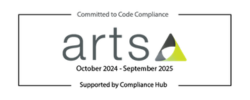Women’s health and diabetes
Heather Bell is a Belfast-based GP with a specialist interest in diabetes and women’s health. At Diabetes Professional Care 2023, Heather gave a presentation about the intersection of her two areas of expertise, with a focus on diabetes and menopause.
Heather begins by reminding the audience of the role of the two main female sex hormones, and the additional effects that fluctuations in hormone levels might have on patients with diabetes. Heather notes that, “oestrogen is so important for our reproductive health. It’s the gift that keeps on giving. But oestrogen isn’t only important for reproduction and for periods; it also works on so many organs in the body. Oestrogen can make the body more susceptible to insulin, thereby optimising insulin activity. A lack of oestrogen can lead to insulin resistance via the pancreas with impaired insulin secretion, it can impair glucose uptake in the muscles, and it can change fat distribution in the adipose tissue.” The drop in oestrogen triggered by the onset of the menopause can therefore impact blood sugar levels, making diabetes much harder to manage during the perimenopause and menopause.
A fall in progesterone levels during the menopause can equally have an impact on blood sugar levels. “Let’s not forget progesterone. Progesterone is so important for glucose modulation. Progesterone is a sleep hormone, so a lack of progesterone can affect our sleep. When we’re not sleeping, we get a cortisol drive and our sugars go up as well.”
The reduction in these two female hormones during the menopause can significantly impact blood sugar levels. Add into the mix the array of menopause symptoms that women experience – including hot flushes, brain fog, anxiety and depression, and fatigue – managing both diabetes and the menopause becomes increasingly difficult. “I don’t have diabetes,” says Heather, “but I imagine that it’s pretty stressful. I also think that having diabetes as well as many other symptoms of the menopause must be an absolute nightmare. Hot flushes and palpitations can be easily confused with hypos, so we need to advise our patients to check blood glucose levels more frequently.”
So what can be done to help women to manage their diabetes during the menopause? Heather explains that, “we need to go back to basics and think about the weight gain that can happen during menopause. We need to adjust diet and lifestyle, and never forget that message. Because if we’re putting on weight, our blood pressure can be poorly controlled and our lipid management can be affected. Simple messages can have a massive impact and a huge benefit on glucose control.”
Another option to consider for women with diabetes during the menopause is prescribing HRT. Although there is a lack of evidence around the benefits of HRT for women with type 1 diabetes, HRT could be beneficial for treating menopausal symptoms in women with type 2 diabetes and has been shown to be statistically significant in reducing levels of abdominal fat, favourably changing blood cholesterol levels, improving insulin resistance and reducing blood pressure. “Does that mean that we put everybody with type 2 diabetes on HRT? Absolutely not. It’s a conversation we should have with our patients and something we should risk assess on an individual basis.”
In conclusion, the changing levels of female reproductive hormones during the menopause can have a significant impact on blood glucose, meaning that managing diabetes during this time can be particularly challenging for women. However, discussing HRT options with patients and encouraging them to make healthy lifestyle changes may help to make managing the two conditions more manageable.
To register your interest in attending Diabetes Professional Care 2024 on 15-16 October at Olympia, please register here.



)
)
)
)

)
)
.jpg/fit-in/1280x9999/filters:no_upscale())
.png/fit-in/1280x9999/filters:no_upscale())
)
)
)
